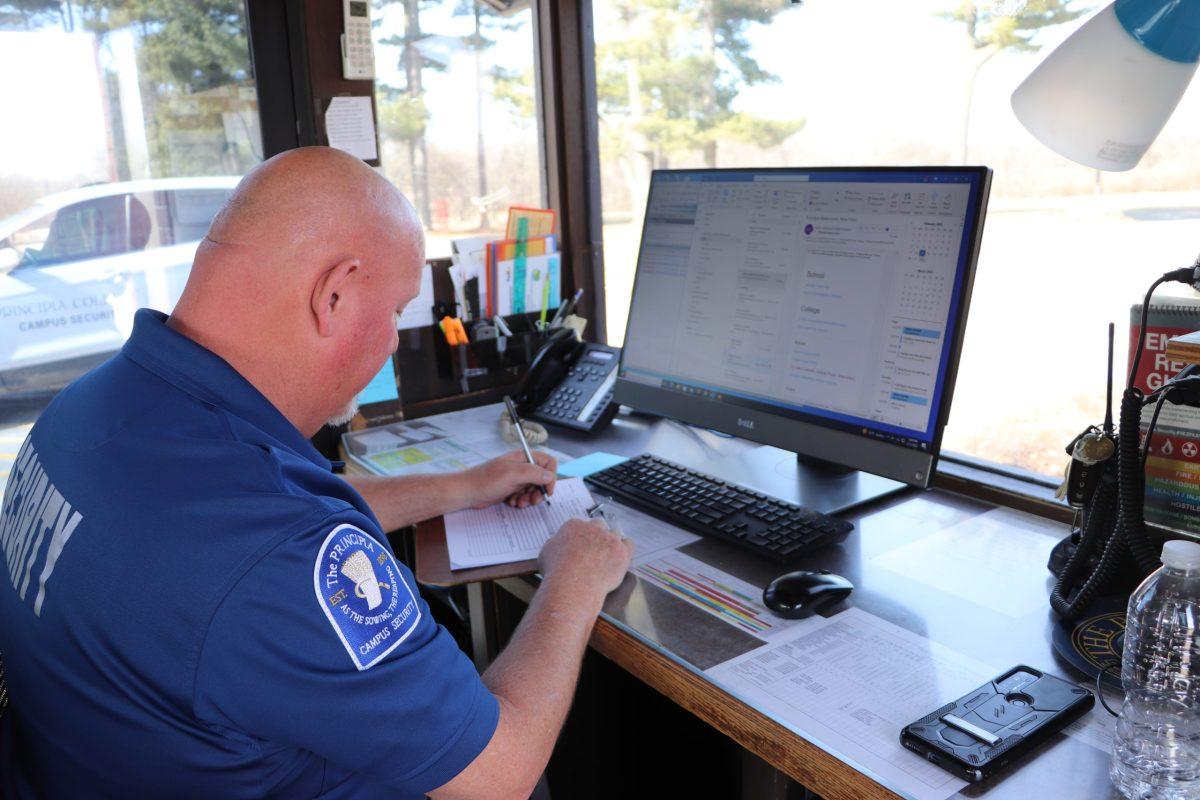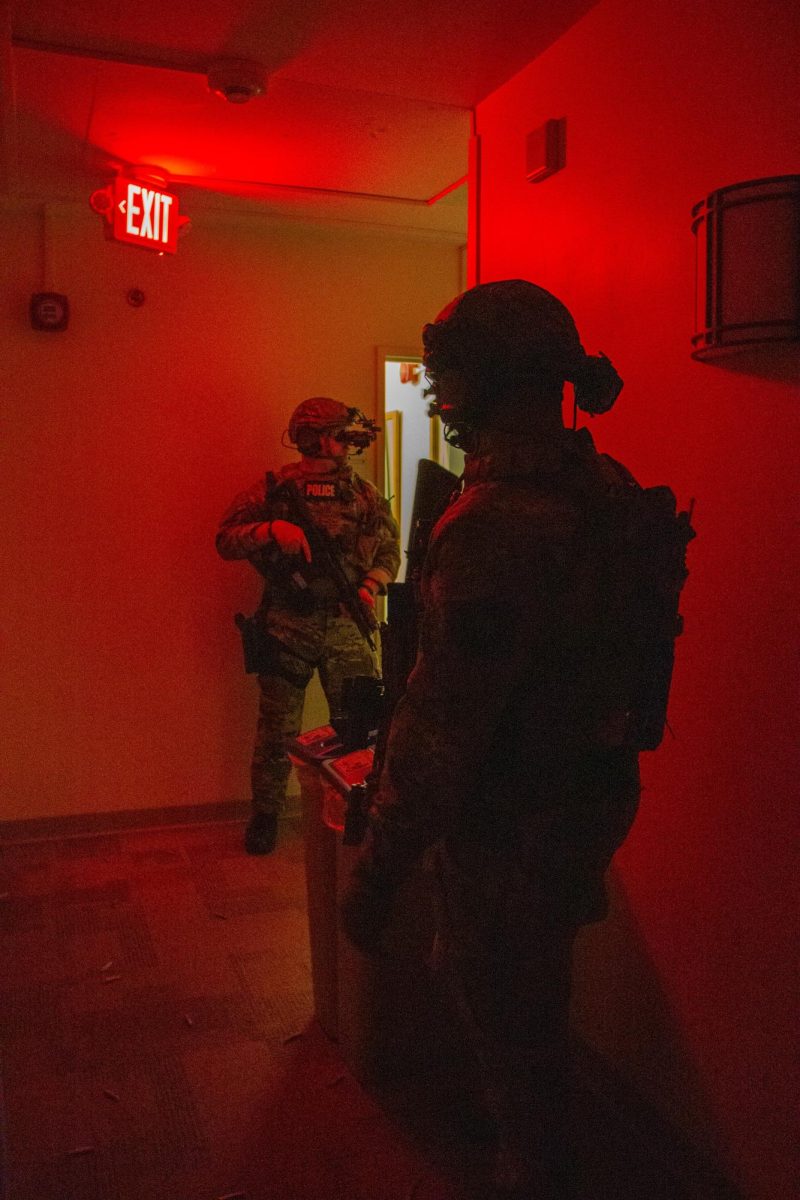Below the dining room in Howard Center there is always a continuation of improvement and training being implemented in the campus security office. “It’s almost never ending…school technology has advanced so much” said Andrew Lesky, Director of Campus Security.
Principia happens to be a different school, requiring different implementations for security. Research and studies plays a part in deciding when security wants to bring in new technology for the campus.
Security has always been short-staffed at Principia. In a recent watercooler article, Campus Security announced two new additions to the team, Mac McCartney and Mike Ringhausen. Combined, they bring over 60 years of experience.
McCartney and Ringhausen are both former “top cops”. McCartney was the police chief of Carrollton, and Ringhausen was recently the former Sheriff for Jersey County. Lesky explained, “Basically with any position, you want the most qualified candidate. McCartney and Ringhausen bring tons of experience to the table.” From working in undercover units to hostage negotiator, McCartney and Ringhausen have experience in dealing with high stress situations
Ringhausen, being the Sheriff, had schools in his district. He currently holds a certification in active shooter training and is now an instructor. Lesky also said that himself and Ringhausen have walked around different buildings on campus to help identify safe hiding places in the case there is an active shooter. “There is an emergency plan in place. There are so many things behind the scenes that we do to keep the college safe” said Lesky.
With the additions of these officers it saves the time of training them. Finally, leaving time for security administration to advance and be fully staffed days and nights. “It wasn’t a push to go out and grab law enforcement” They’re not here to look for drugs but instead that description [in the watercooler] was to highlight what they would have been the most proud of said Lesky.
“These gentlemen became available to us thanks to Officer Brett Vetter” said Lesky. Vetter throughout the years worked in Elsah and Principia was able to recently liaison with him and bring Vetter on fulltime to the campus security team. Vetter was then able to recruit these new officers on his behalf, stating his love for the Principia community.
Lesky explained that having already been out in the field these gentlemen know what to do and know what to say. They’ve seen it all”. Lesky is excited to have two highly trained officers on campus. “It finally gives me time to be a director,” said Lesky. As for how McCartney and Ringhausen have been doing on the job Lesky said, “They love to be here, they’re both funny, love people, they were even handing out valentines.”



